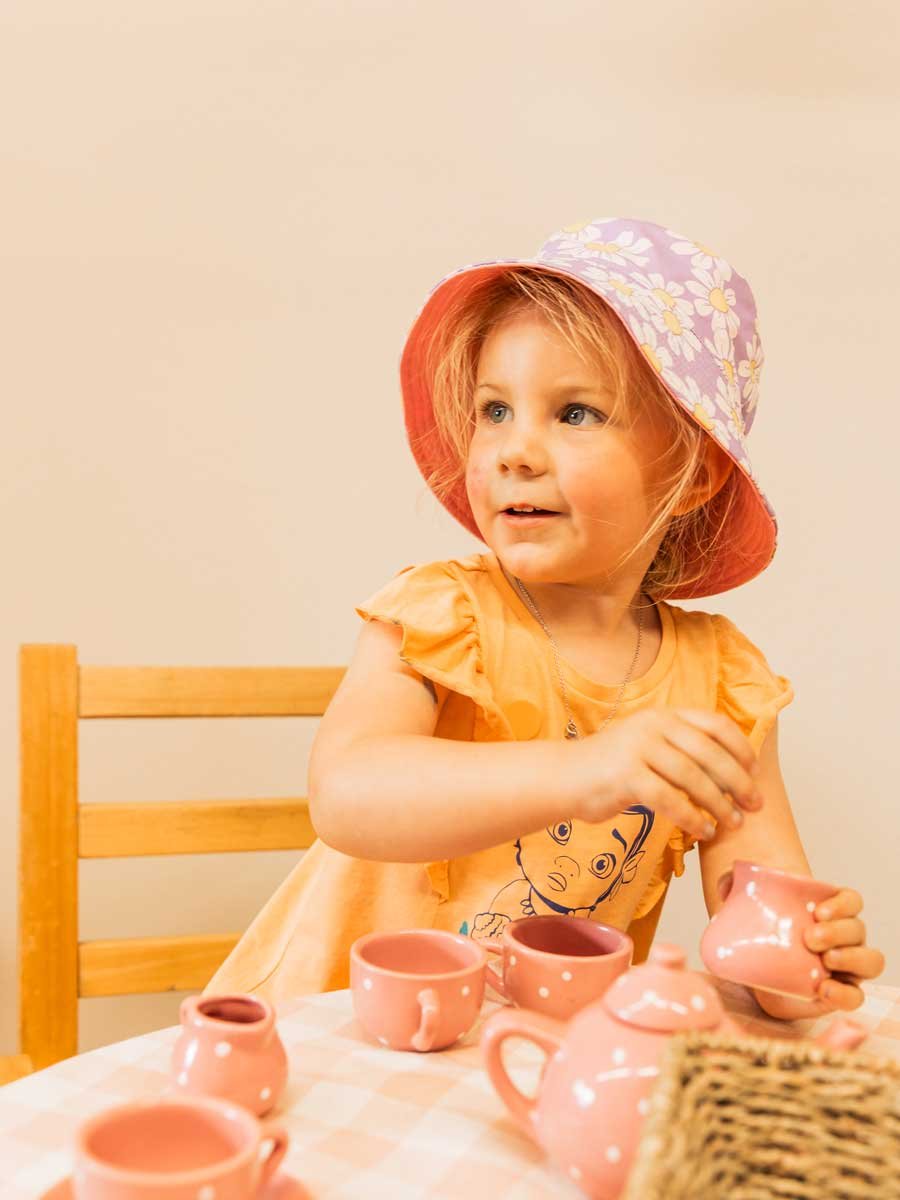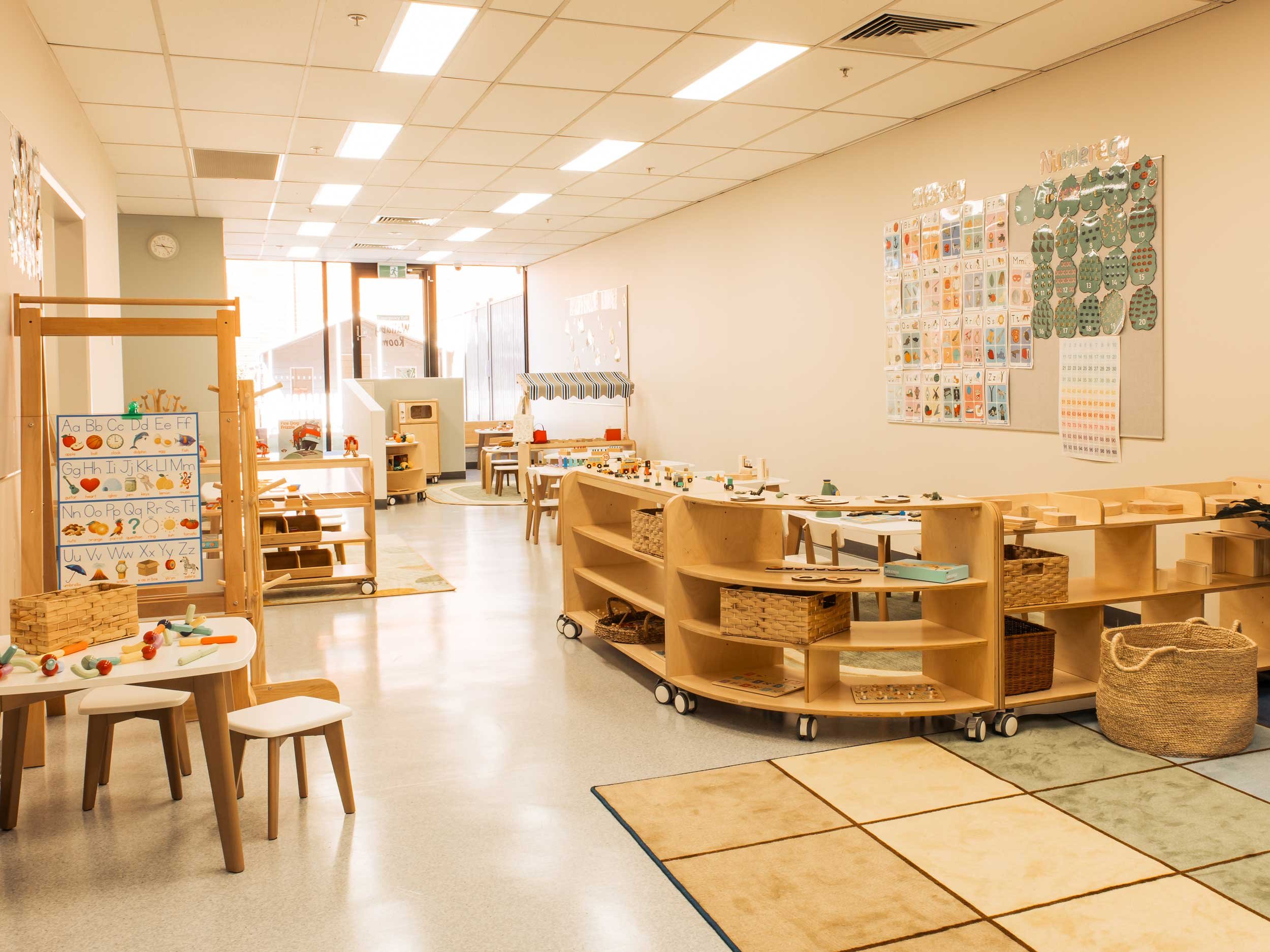Educational Programming & The Early Years Learning Framework (EYLF)
The Early Years Learning Framework (EYLF) is a National Early Learning Framework for children from birth to school age.
The EYLF framework ensures that every child receives a quality educational program. Educators at Jane's Place use the framework with the help of family input to develop learning programs open to children's ideas, interests, strengths and abilities and recognise that children learn through their play.
The Early Years Learning Framework describes childhood as a time of belonging, being and becoming.
-
…is the basis for living a fulfilling life. Children feel they belong because of the relationship they have with their family, community, culture and place.
-
…is about living here and now. Childhood is a special time in life and children need time to just ‘be’ – time to play, try new things and have fun.
-
…is about the learning and development that young children experience. Children start to form their sense of identity from an early age, which shapes the type of adult they will become.
At Jane's Place, we offer an inclusive program, supporting the families' home and cultural practices where possible allowing us to recognise and respect an individual's faiths and needs. We discuss these needs early on to ensure we meet the child's needs. We invite parents to participate in our program - to share skills, interests, and knowledge, and to participate in the development of their child actively.
At Jane's Place, we offer an extensive Creative Program within the setting. Children absorb and develop their base knowledge through all aspects of life and learning through an interactive, culturally rich and diverse range of activities and programs.
For more information on The Early Years Learning Framework, you can visit our Parent Library.
We focus on the five learning outcomes of the Early Years Learning Framework (EYLF) to help each child develop:
-

A strong sense of their identity
-

Connections with their world
-

A strong sense of wellbeing
-

Confidence and involvement in their learning
-

Effective communication skills
Foundations of the Program
There are several fundamental views and principles which underpin our program: We share Millikan's (2003) view of the child as, ‘competent, intelligent, co-constructors of knowledge, researchers actively seeking to make meaning of the world, often in collaboration with others’ (Millikan in Reflections Page 33).
We acknowledge children as citizens and respect them for who they are now.
We recognise the family as the most powerful influence on the child's holistic well-being. We must consider the child's experiences with their family and the family's perspective. Children and families have a right to participate in decisions that affect their lives.
We emphasise the fundamental importance of relationships - relationships between children, children and their teachers, teachers and families and teachers.
We understand that as children develop and interact with their environment, they discover themselves, others and life. For this reason, we place value on ensuring that children's environments reflect and respond to their interests, their community, and our understanding of children.
We encourage and foster children's inquisitive nature and believe that children should be prepared for schooling and their anticipated expectations in these settings.
Development and Education
The Program
It is our policy that the Program at Jane’s Place ELC reflects our centre Philosophy along with the EYLF and is based on our beliefs about individual children in the context of their family, their community, their relationships and time and space - in fact - everything that the child experiences.
The Program also reflects our acceptance of professional responsibility with regard to children and families, our knowledge of children and their health & well-being, and our conviction that to be truly meaningful to families and children, the Program must be dynamic and evolving.

Guiding Principles
Our homely environments offer familiarity, comfort, and reassurance. All being necessary for children to settle into their new learning environment.
Our educational direction is:
Child-focused, which offers children autonomy within their environment.
Interest-based, allowing each child's natural curiosity to guide and influence their decision-making and concentration.
Supported by educational influences with structured outcomes in distinct areas of development (personal, social, emotional, cognitive, language, literacy, motor, and self-help.
Our diverse programs flow through each room and culminate in preparation for school at each child's level of development through their interests and needs.
Our routines guide practices to offer consistency, familiarity, and comfort. The Framework provides boundaries and allows for individuality, including realistic and age-appropriate expectations and guidance.
Our holistic blend of approaches combines various philosophies, methods and techniques that support individual needs and learning levels. In addition, this holistic approach allows for inclusive practices, which reflect the many cultural identities and backgrounds of our families and staff alongside our local and broader communities.
Our high standards across all levels ensure that the growing requirements of children, families and staff are met and that Jane's Place ELC Guiding Principles are attained and improved.
Our continued professional development of staff allows for each staff member to fulfil personal and career goals while engaging in a dynamic educational industry of diversity and inclusivity, ensuring that Jane's Place ELC remains an employer of choice.
Assisting Children with Additional Needs
At Jane's Place, we support the inclusion of children with additional needs.
We look upon early intervention positively and apply an open-door policy regarding communication and assessment of children within our care.
Families/caregivers are encouraged to work in partnership with professionals in making informed decisions concerning their children's individualised programs and their implementation.
The staff has a responsibility to promote the empowerment of families/caregivers in an endeavour to maximise the development of their children.
Children and their families will be linked to available services/specialists and therapists and provided with resources as required.
Parental and Family Involvement
An integral part of the program is our continual communication, consultation and collaboration with families.
This is achieved by:
Welcoming families to join us in planned activities and are made aware of our open door policy.
Sharing information with families about our perspectives, beliefs and values; our knowledge of the child's daily experiences; the child's ideas, interests and overall progress; the ways in which we respond to children (within the context of the group) and how we guide the evolution of the program. This is achieved through verbal communication, written daily documentation, meetings, displays, newsletters and our on line software program and documentation process allowing families and carers to view this information from outside our centre.
Seeking information from families regarding their beliefs, perspectives and values; goals for their children; children's interests and experiences within the context of their home.
This information is reflected in the program and in the environment by actively using resources brought in by families, ensuring that resources within the environment reflect children's interests and home experiences, initiating conversations with children.
Respecting families’ individual comfort levels and preferences about how they would like to be involved; for example families may prefer involvement within daily experiences; meetings or making suggestions and giving feedback or any number of these.










